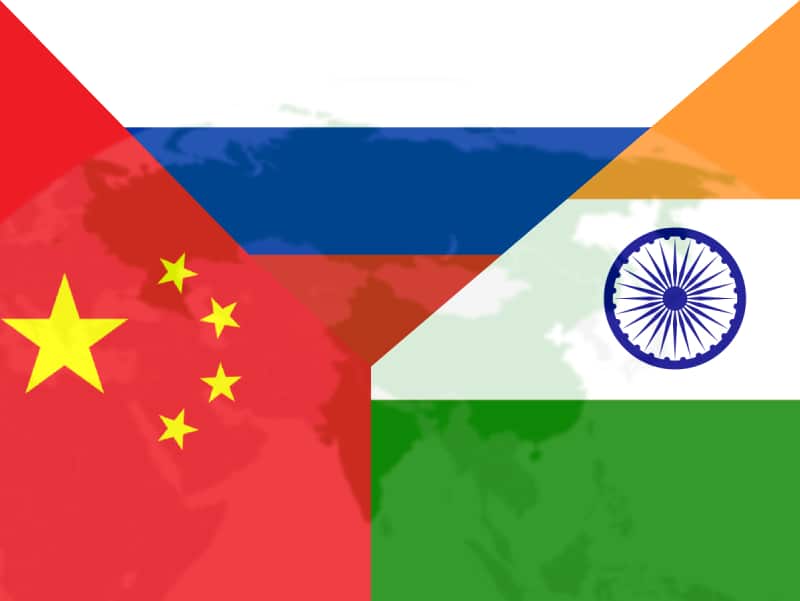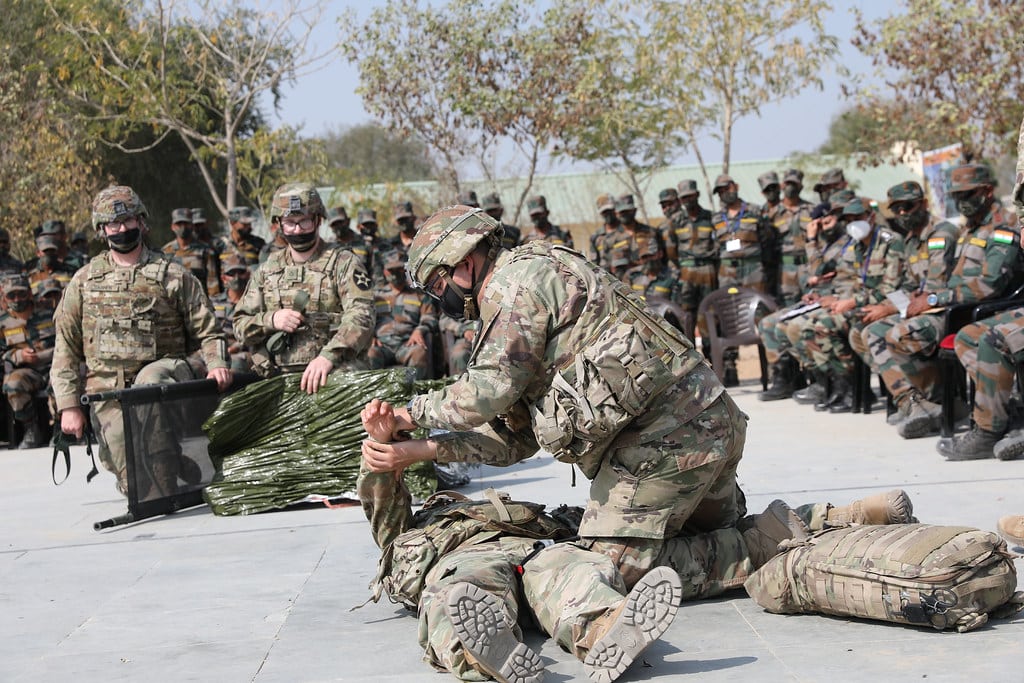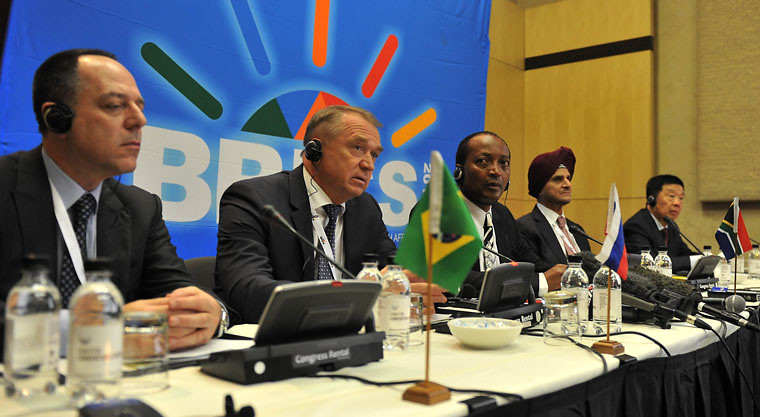
Verzija teksta na srpskom jeziku autora Milice Otović dostupna je na sledećem linku: Tekst na srpskom jeziku
The Shanghai Cooperation Organisation (SCO) summit held in Samarkand in mid-September 2022 once again raised the issue of international support for the Russian Federation, which is currently facing profound challenges in numerous fields, including diplomacy. At this event, the bilateral meeting between the Prime Minister of India, Narendra Modi, and Russian President Vladimir Putin particularly drew attention because the Indian PM expressed a negative attitude towards Russian actions and current aggression against Ukraine. In addition to criticising the war by pointing out that such a conflict is nowhere near appropriate for modern times, Modi also suggested that Putin move towards a peaceful resolution of the issues between the two countries.
Given the close connection between Moscow and New Delhi throughout history, some sources speculate that Modi's statement may have been carefully thought out in coordination with Russia even before the SCO summit, seeing that Putin apparently took these remarks rather lightly during the meeting. The relationship between these two countries nonetheless became complicated after representatives of Indian authorities, despite their recent reticence, decided to show support for a resolution that would allow the President of Ukraine, Volodymyr Zelenskyy, to virtually address the United Nations General Assembly. These developments thus not only refuted the arising rumours, but also influenced the neutral position towards the conflict between Russia and Ukraine India attained until recently. Therefore, the questions of what led this Asian country to reconsider its foreign policy course and how this change will be manifested in the future logically arise.
Sustainability of the partnership between Russia and India Although they initially did not publicly disclose their position on the aggression against Ukraine so as not to directly confront Russia, it seems that the authorities of the Republic of India have realised that such an uncritical narrative does not serve the country’s long-term interests. As the importance of the partnership between the USA and India is increasingly coming to the fore, New Delhi officials have recognised the need to publicly express their concern about the war on European soil. The change in India's attitude accordingly shows that its authorities are well aware of the circumstances but also cautious due to the close proximity of China and Russia.
A crucial factor enabling India to further strengthen its relations with the West without disrupting the import of Russian energy products and weapons is precisely the situation Moscow authorities currently face. All of the above points to the possibility of the US expressing greater concern for India’s needs in the future, primarily regarding access to energy resources and long-term defence strategies. Namely, if the US truly wants to take advantage of the current Russian vulnerability and encourage the potential change in India's foreign policy course, cooperation in the aforementioned areas must be further strengthened.
It also remains to be seen what future approach the US will have towards this Asian country regarding the vital energy needs that India meets with the aid of other suppliers from its immediate surroundings. This issue became particularly important at the previous summit, during which negotiations were held with the Indian delegation on restoring oil imports from Iran. However, it would be wrong to say that the partnership between Russia and India will be discontinued, seeing that the Russian Federation remains an important supplier of both weapons and oil for India. Despite the intensified security cooperation with the USA, this South Asian republic has, just like China, not yet imposed sanctions against the Russian Federation, primarily to maintain its own interests and stability, which further supports the previous claim. India also abstained from voting on the UN resolution calling on member states not to recognise the secession and Russian annexation of four Ukrainian regions after the so-called referendums held at the end of last month.
This year's summit in Shanghai also brought changes in the politics Russia and China propagate, with Russian President Vladimir Putin making a rather unexpected public statement that the leader of China, Xi Jinping, raised questions and expressed concern about the war in Ukraine. The first cause is believed to be the unexpected prolongation of the war contrary to initial predictions, which may cause serious repercussions for the global and Chinese economies. This conflict has also uncovered weaknesses the Russian Armed Forces exhibit as a strategic partner of the People's Republic of China, which in turn may cast doubt on the military capability and capacity of this Asian country.

The second cause for concern is the manifestation of solidarity between the USA and its allies (especially considering the expanded rapprochement with Europe) by directly supporting Ukraine in the current conflict. Help was also provided by other American partners, such as Japan, South Korea and Australia, who also strongly condemned the Russian aggression against Ukraine and delivered packages of humanitarian aid, weaponry and military equipment. This situation seems to have further raised China's concerns, particularly when it comes to the further strengthening of US alliances and positions in the Indo-Pacific region. Beijing officials will, therefore, certainly have to be more responsible in their relations with the West so as not to seem unreliable and irresponsible in the international arena.
Claims that Washington representatives forwarded their Chinese colleagues information on the gravity of Russian intentions right before the onset of the aggression against Ukraine depict the importance of the role China has in the conflict. Accordingly, the USA encouraged China to utilise its influence on Russia to prevent an impending war. Certain Western sources have, on the other hand, repeatedly published reports in which they indicated possible cooperation between Beijing and Moscow, especially in terms of providing military and economic aid. China also skilfully inherited the Russian way of conducting media manipulation, hybrid war and spreading fake news and propaganda, providing this country with significant support on the topic in the recent past.
Despite everything mentioned, the Red Cross Society of China sent humanitarian aid to Ukraine in March 2022, showing that it adheres to the Charter of the United Nations by respecting the sovereignty and territorial integrity of all countries. The justification for this aid can also be found in China's position on Taiwan, which it considers part of its territory. However, the described behaviour of Beijing officials is also caused by the fact that providing additional assistance to Moscow would increase the possibility of this Asian state facing sanctions by the international community. As China did not hesitate to engage in the trade war with the USA before, it is unlikely that a potential threat would prevent further increase of support to the Russian Federation, especially if this assistance would contribute to the fulfilment of China’s interests.
On the other hand, a possible victory of Russia in the aforementioned conflict would increase its assertiveness with a view to maintaining its position as a military power, which would not work in China's favour in the long term. A defeated, weakened and isolated Russia would, contrastingly, become the Asian country’s weaker partner, giving China access to the natural resources in Siberia, a key geopolitical factor in the relations between the two countries. Although the most populous country in the world has been trying to solve the issue of population growth for decades, its citizens still face problems caused by overpopulation. This issue forms the basis of the thesis on the possible settlement of the nearby expanses of Eastern Siberia and the Russian Far East, which can become an ideal place for China's further expansion.
In addition to all of the above, it is crucial to keep in mind that Russia, India and China have joined forces with the emerging powers of Brazil and South Africa to form a union known as BRICS. The reason for the association of these five countries is reflected in the fact that, with the exception of China, they do not have enough economic power individually, nor do they have the opportunity to be highly positioned in the world. From a historical point of view, BRICS has, since its inception, represented nothing more than its acronym, and its dysfunctionality can be seen through several vital aspects. Namely, these countries have a poor rate of bilateral trade, with geographical distance being one of the probable reasons. Direct flights exist only between several largest cities, the countries are ethnoreligiously diverse, and the languages of these countries are typically not studied in schools and universities, meaning that even the educated people from these five countries have very little understanding of each other's history and culture. Despite their differences, the viability of the BRICS depends mostly on how well they can cooperate and in which areas, and how they can respond to common challenges, one of which is certainly the age-old rivalry between India and China.

Namely, Beijing's long-term goals include dominating the greater area of East Asia in order to eventually achieve global primacy. India, on the other hand, has long been trying to establish hegemony in South Asia and on the Indian Ocean, and if this aim was to be met, further expansion of Chinese influence in the region would undoubtedly be prevented. China thus views with trepidation the rise of its rival and India’s expanding partnership with the United States and Japan. Essentially, the rivalry between the two countries is linked to their territorial disputes over the longest unmarked border in the world, located in the Himalayas. Given China's sensitivity to issues related to this part of the country and Tibet and the fact that the frontier between Tibet and India constitutes the majority of the Sino-Indian border, it is highly unlikely that the dispute will be resolved in the near future.
Various indicators point to a possible further deterioration in the relations between the two countries in the coming period if India's rate of economic growth exceeds China's. While the South Asian country is predicted to be the only power whose economy will grow at a rate faster than China's, it remains unclear whether Indian authorities can sustain such a growth rate. Therefore, when it comes to current events in this part of the world, it seems that the greater area of the Asian continent will not be able to withstand three strong global stakeholders in the future, especially if they continue to face mutually unresolved issues and conflicting interests.
Translated and proofread by: Milica Milosavljevic
Author: Milica Otovic


